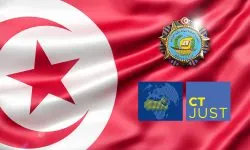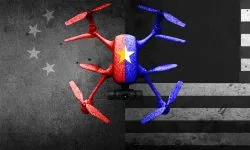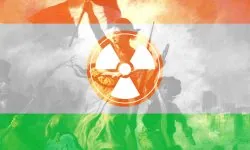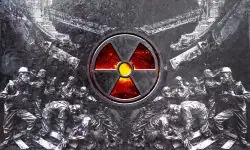Riots and protests have been progressively, and in an accelerating way, occurring in many countries. Starting with France in 2005, they spread throughout most of the world, from the Arab Spring to Thailand through Hong Kong, the U.S. or, more recently Venezuela, Algeria and France, again, with the Yellow Vest movement at the end of 2018 and beginning of 2019. Meanwhile global environmental movements spread (see “Understanding the French Yellow Vest Movement and its Crescendo” and “Stabilising Or Escalating the French Yellow Vest Movement?“,The Guardian, “Global youth movements: tell us about your grassroots campaigns“, 25 April 2019).
In the meantime, public deficits have become structural and entrenched (see e.g. Luca Ventura, “Percentage of Public Debt to GDP Around the World 2018“, Global Finance, 17 December 2018). The financial and economic crisis the sub-primes triggered in 2007 made these deficits even more acute (Ibid.).
- Fifth Year of Advanced Training in Early Warning Systems & Indicators – ESFSI of Tunisia

- Towards a U.S. Nuclear Renaissance?

- AI at War (3) – Hyperwar in the Middle east

- AI at War (2) – Preparing for the US-China War?

- Niger: a New Severe Threat for the Future of France’s Nuclear Energy?

- Revisiting Uranium Supply Security (1)

- The Future of Uranium Demand – China’s Surge

Some elections have resulted in completely unexpected results, such as, in 2016, most famously, the Brexit and the choice of Donald Trump as President of the U.S.. This led many to denounce the come back of a dangerous “populism” (see Beyond the End of Globalisation – From the Brexit to U.S. President Trump; Investigating the Rise of Populism – A Perfect Definition? and Investigating the Rise of Populism (2) – Populism-Labelling and its Dangers).
As a result, the signals we had identified back in 2011, with the first edition of this article and of The Chronicles of Everstate, not only did not relent but, on the contrary, strengthened.
Back in 2011 and 2012, to explain there was something amiss and, that, yes, it was highly likely that the “liberal democracy” system would change was met with incredulity at best. Government officials, even in countries most advanced in terms of foresight, and corporate high level executives tended to be most skeptical.
Yet, things have changed, and are still changing.
It is everyday increasingly clear that something is happening at the very heart of our societies. The political systems in which we live are under stress. Changes are in the making.
The end of the modern nation-state?
Those very real events reflect a concern that has been underlined and debated in social sciences, notably international relations theory and political science, for a long while. It has most often been expressed as the impending demise of the modern nation-state and related system. Already in 1977, Hedley Bull in his masterful The Anarchical Society was, among other, testing various hypotheses related to possible future evolutions of political systems.
Furthermore, the strength or fragility of the state generates a lot of interest (e.g. OECD, States of Fragility 2018, July 17, 2018; Paul Collier, A new approach to state fragility, Brookings, 11 January 2019). Indeed a growing fragility could lead to civil war, state collapse and generalised warfare.
The state is this political entity that is so difficult to define precisely and universally, and, yet, that we immediately recognize when we deal with it or when it is not there anymore. It is Hobbes’ Leviathan, and, without it,
“The life of man [is] solitary, poor, nasty, brutish, and short.”
Thomas Hobbes
The type of state that is prevalent nowadays is described as modern (the modern state), centralized and rational. It is linked to the nation (the nation-state). The 1648 Treaty of Westphalia marks the birth of the modern state system.

As human beings, we all live under one form or another of state. The state is the guarantor of security writ large, from the protection of foreign enemies to domestic peace to the foundation for material and immaterial security (Barrington Moore, Injustice: Social bases of Obedience and Revolt, London: Macmillan, 1978). Hence, fragile states could mean strife and death. Thus, the state’s potential disappearance, as well as its changes, primarily concern us all.
We must be able to envision its plausible futures.
The question is absolutely crucial because from the answer will depend how we shall deal with all other issues facing us, from climate change to geopolitics through food and energy security, among others.
It is even more important because, to these challenges that were obvious back in 2011, we must now add the paradigmatic changes that artificial intelligence and quantum information science will bring.
How to foresee the future(s) of the modern nation-state? The Chronicles of Everstate
As methodologies such as strategic foresight and warning (SF&W) or risk management exist to properly envision changes and imagine possible futures, we applied SF&W to this debated and complex issue.
Our foresight question is:
What will be the future of the modern nation-state, this ideal-type form of polity into which most of us live nowadays, over the next twenty years?
Developing an adapted foresight methodology
Building upon existing methods and tools, we designed a tailor-made methodology to serve a quadruple purpose.
1- Scenarios as groundwork to explore the future of nation-states
First, the methodology had to lay the groundwork to explore the futures of modern nation-states over the next twenty years. This means we wanted to be able to use our work for all states, of course adapting it to the specificities of each one.
Considering the wide range of states, we needed to work with ideal-types. As a result, the methodology builds scenarios for a fictional state created to imagine and tell the story of potential futures for our – very real – states or countries. All the related articles and narratives were gathered under the name of “The Chronicles of Everstate”.
The narrative focuses on fundamental political dynamics, which lead to three scenarios.
We explore in detail a first scenario, “Mamominarch: Off with the State”, where the liberal logic is exacerbated and where the search for profits tends to take precedence over any other concern. We stress test the scenario with a set of catastrophes deemed likely, considering the selected variables.
We then turn to a second scenario, “Panglossy: Same Old, Same Old”, where a milder type of liberalism with laissez-faire rules.
The third scenario, more optimistic, was assessed as so unlikely at the time of writing, that we chose then not to develop it further before more interest emerged. If we had been building of a full set of scenarios for a corporate of public clients, and not for publication on the web, then we would had also developed this scenario and related sub-scenarios.
The current evolution, including in terms of beliefs, of transition of the international order, rise of Artificial Intelligence and Quantum Information System, while the threat of climate change does not relent, suggests that enlightened actors could now become interested in the development of this third scenario and offshoots.
2- Sense-Making for reality
Second, and in a related way, the Chronicles help illustrate the various political dynamics at work in the world, and how they could evolve – or not – in the future.
As they are presented as ideal-types, readers can use them to identify the dynamics at work in the real world. Using the Chronicles, s/he will then have a better idea of the highly likely impacts of the phenomena they observe and that inform their lives and activities.
3- Methodological objectives
Third, the Chronicles fulfils methodological objectives.
They are an experiment in constructing an extremely detailed scenario analysis and narrative. We used the experiment to improve the overall methodology of the Red (Team) Analysis Society. Meanwhile, we also tested the use of ego networks to develop a narrative.
Building upon a methodology evolving out of classical structural foresight analysis, we creatively yet scientifically adapted our design and tools to the issue at hand.
We used the software Gephi to create the model, then throughout the whole foresight analysis. In the meantime, we tested various visual tools and designs to enhance the delivery. For example, to illustrate the scenarios, we used the famous triptych by master Hieronymus Bosch, The Garden of Earthly Delights.
We adopted an imaginary time, Evertime (in short EVT). The timelines or sequences of events and the durations are, nonetheless, similar to what we experiment in real life. As real events unfold, the Chronicles thus give us elements to test and improve our understanding of time. It helps documenting if political science-based estimates were too short or too long, if dynamics took longer than expected, etc.
4- Strategic foresight analysis as an investment
Finally, the Chronicles seek to demonstrate the advantage to develop in-depth and serious scenarios, using necessary resources and grounding them in science.
The continuing pertinence of the Chronicles of Everstate over time shows indeed that scenarios may be relevant long after they have been written. When updates are necessary, then the existence of a strong underlying model allows for a – relatively – easy improvement.
As a result, actors can understand strategic foresight as an investment.
Who are the “clients”?
SF&W only exists if clients receive its products (Cynthia Grabo, Anticipating Surprise: Analysis for Strategic Warning, 2004). Thus, we had to identify who were the customers or clients for the Chronicles of Everstate, knowing they would be published on the web. Then we had to imagine the best possible form for the product considering those customers and web constraints.
The ideal point of view we took was that those clients and users were all those concerned with the modern nation-state and its changes as explained in detail in Meeting the Need to Foresee and Warn – Our Philosophy: primarily the contemporary rulers of the state, i.e. the nation and the citizens, the corporate sector, and the civil servants working for the state apparatus that supports the ruler, .
The format of the Chronicles of Everstate, which we are now re-publishing considering their relevance, is an answer to those various concerns. We aimed for relatively short pieces, each starting with a summary of the previous articles. We thus actually developed a serialised narrative. It can be read in order to focus on dynamics but also according to themes, using the title of the article. The Table of Contents is available here.
The first section presents the rationale behind the Chronicles of Everstate, why Everstate, and how to use the concept. It includes a series of articles that are methodological in focus and explain the nuts and bolts of the Chronicles.
Then, we tell the Chronicles of Everstate. All articles are at the same time a didactic practical application of the methodology and the development of the narratives of the various scenarios for the future.

Welcome to the Chronicles of Everstate!
Enter…
Notes and References
Bibliography on nations, governance and the modern state
Anderson, Craig A., Mark R. Lepper, and Lee Ross. “Perseverance of Social Theories: The Role of Explanation in the Persistence of Discredited Information.” Journal of Personality and Social Psychology 1980, Vol. 39, No.6, 1037-1049.
Bull, Hedley, The Anarchical Society: A Study of Order in World Politics. London: MacMillan, 1977.
Gross, Leo (January 1948), “The Peace of Westphalia“, The American Journal of International Law 42/1 (1): 20–41, doi:10.2307/2193560.
Grabo, Cynthia M., Anticipating Surprise: Analysis for Strategic Warning, edited by Jan Goldman, (Lanham MD: University Press of America, May 2004)
Moore, B., Injustice: Social bases of Obedience and Revolt, (London: Macmillan, 1978).



Un travail remarquable, qui permet ENFIN DE suivre les basculments politiques en entrant dans les logiques qui les sous tendent et non pas en répétant les lieux communs hérités du siècle derner. On est enfin au vingt et unième siècle.
Merci mille fois pour ce commentaire si encourageant!
Ho yeah !!!